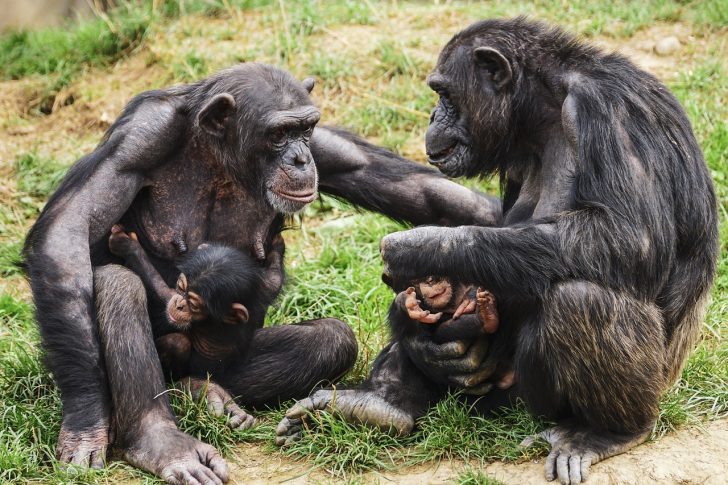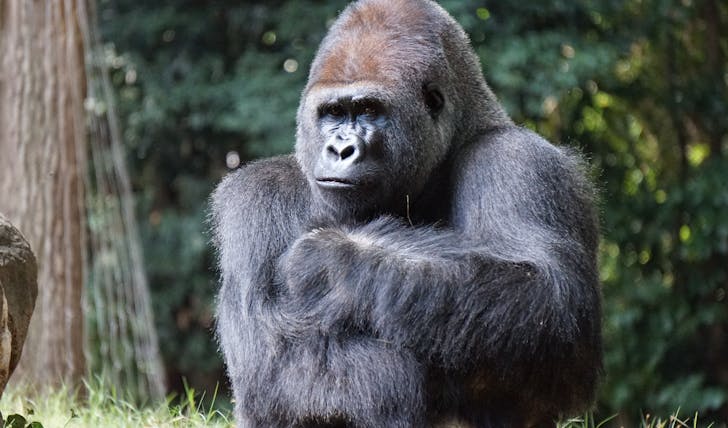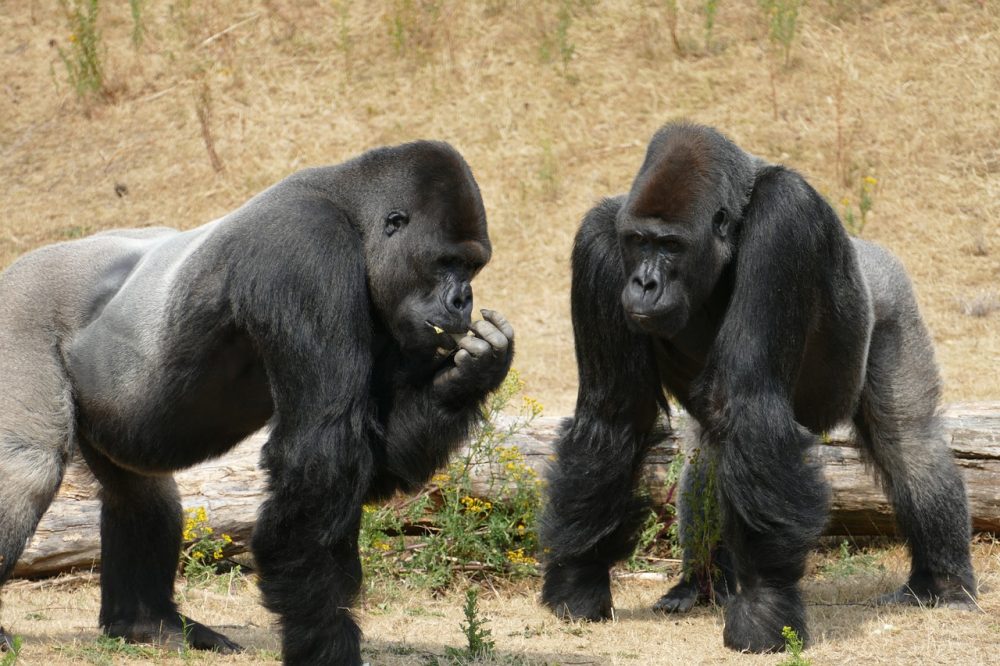A sense of humor is often thought to be a uniquely human trait. Deeply embedded in our social interactions and cultural nuances. From the infectious laughter of infants to the joyous reactions of adults to comedy, humor plays a significant role in human life. However, recent studies have shed light on the fact that the capacity for humor extends beyond the human species, permeating various corners of the animal kingdom.

Chim / Pixabay / According to studies, Great Apes have a unique sense of humor. They use humor to tease each other and strengthen their bond.
The journey of humor begins in infancy, where even the youngest humans exhibit a keen appreciation for the comical. Parents often find delight in eliciting giggles and laughter from their babies by making funny faces or engaging in playful interactions.
This early inclination towards humor only grows as children develop, with many finding joy in cartoons, jokes, and comedic performances throughout their lives. Whether it is slapstick comedy or witty wordplay, humans are drawn to humor in its various forms. This highlights the innate presence of humor in our social and emotional fabric.
Humor Among Great Apes
Among our closest relatives in the animal kingdom, the great apes, humor takes on a form that is both intriguing and familiar. Studies have shown that species such as chimpanzees, bonobos, and orangutans engage in behaviors that bear striking similarities to human humor. These primates use playful antics to tease and amuse each other, often as a means of strengthening social bonds within their communities.

Chris / Pexels / Observations of great apes in their natural habitats have revealed a wide array of playful behaviors that mirror human jest.
From gentle poking and hitting to more elaborate antics such as hindering movement or pulling on body parts, these primates display a remarkable capacity for lighthearted interaction. Some individuals even engage in repetitive actions, such as waving objects or pulling hair, seemingly with the intention of eliciting laughter or amusement from their peers.
The Sense of Humor in Dogs
While great apes may exhibit humor in ways that resonate with human experiences, our furry companions, dogs, also demonstrate a remarkable sense of playfulness and levity. Dog owners often attest to their pets' ability to understand and engage in humorous interactions. Whether it is through playful antics, amusing expressions, or unexpected behaviors.
Researchers have long speculated about the presence of humor in dogs, pointing to their social intelligence and capacity for empathy as potential factors. Many dog owners can recount instances where their canine companions have delighted them with their playful antics or seemingly intentional acts of mischief.

Atawi / Pexels / Researchers believe that dogs also possess a great sense of humor, and dog owners know it very well.
From stealing socks to performing goofy tricks, dogs often display a keen awareness of the effect their behavior has on their human counterparts, evoking laughter and joy in the process.
So, the presence of humor in the animal kingdom offers valuable insights into the complex nature of social bonding and communication across species. While the specific mechanisms underlying humor in animals may differ from those in humans, the fundamental purpose remains the same: To foster connections, alleviate tension, and promote positive social interactions within social groups.
By studying humor in animals, researchers gain a deeper understanding of the cognitive and emotional capacities of non-human species, challenging traditional notions of human exceptionalism.

